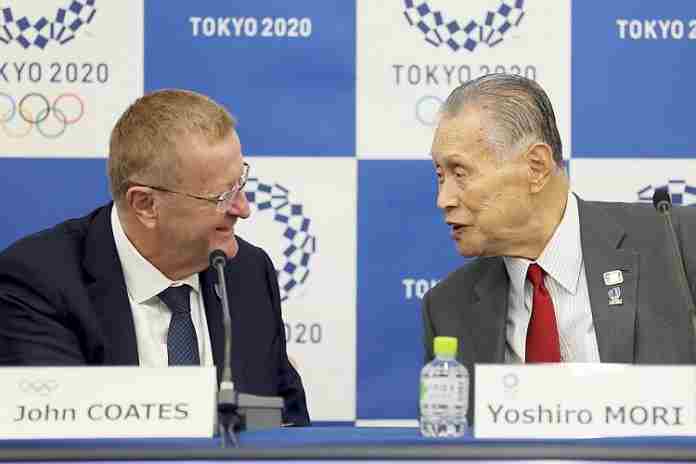
 International Olympic Committee president Thomas Bach has said – with good reason – that the Olympic Movement is in pretty good shape at the moment. Olympic host cities are set through 2028, there are two viable candidates for the 2026 Winter Games and the first-ever Olympic competitions in Africa will be held in 2022 with the Youth Olympic Games in Dakar (SEN).
International Olympic Committee president Thomas Bach has said – with good reason – that the Olympic Movement is in pretty good shape at the moment. Olympic host cities are set through 2028, there are two viable candidates for the 2026 Winter Games and the first-ever Olympic competitions in Africa will be held in 2022 with the Youth Olympic Games in Dakar (SEN).
Moreover, the list of interested hosts for 2032 is already long and there are some television and sponsorship agreements that already are signed for that Games.
That said, Bach continues to be concerned about future interest from bidding cities or regions or countries and is taking steps to completely revisit some of the basic concepts of the revival of the modern Games from the 1890s.
● Host cities? Forget it; try multiple host countries.
● Elections of Games hosts seven years out? Maybe, but not necessarily.
● Want to talk about a future Games – any Games – with the IOC? The door is open, now.
These changes were recommended to the IOC’s Executive Board last week by a working group led by Australian John Coates, who not coincidentally is also the head of the IOC Coordination Commission for the 2020 Tokyo Games. More about him later.
Bach said in his post-Executive Board meeting news conference, “we have been looking into the evolution of this revolution” in Olympic bid cycles and that “the Working Group proposed some key changes in order to avoid producing too many losers, as we had for past Candidature Processes.”
What does that mean?
Most likely, that the 2026 Winter Games process, which ended up with just two candidates, is a paradigm for the future. Although the critics see this process as a failure, as city after city ran away from the event, it actually is going to turn out exactly the way the IOC hoped, with a low-budget host from western Europe.
Moreover, the cost of bidding was kept to a minimum by the IOC, which heavily regulated the process and allowed Milan-Cortina and Stockholm-Are barely a handful of opportunities to make presentations, cutting the most expansive aspect of most bid committee budgets.
There are those who will say that these changes fall well short of what is needed and that the Games – in their current format – are too big and too expensive. The Working Group noticed and sewed the seeds of change into its five key principles for future selections of Games hosts:
1. To preserve the magic of the Games to ensure a once-in-a-lifetime experience for the world’s best athletes;
2. To find the best host for the world’s best athletes;
3. To preserve the IOC Session’s prerogative to elect the hosts for the Olympic Games and Youth Olympic Games;
4. To maintain the fundamental principle of universality;
5. To ensure good governance.
You’re starting to hear the IOC’s new catch-phrase – “the magic of the Games” – to continue to underscore the uniqueness of the Olympic event and validate its attractiveness against all other events (including FIFA’s World Cup).
Note two repetitions of the Games as “for the world’s best athletes.” Recognizing that Bach and Coates can both be – when they want to – cold, clinical thinkers, is this a signal that the number of athletes at the Games, especially the Games of the Olympiad, is going to be reduced in the future? That will be the actual key to reducing the cost of the Games, as it affects everything from accommodations to transportation to venues and – don’t forget – the number of accompanying officials, including coaches, physicians, trainers and all the rest.
And getting back to Coates, his performance in front of the news media in Tokyo at the end of last week’s Coordination Commission meeting was remarkable.
The Tokyo organizers had been pilloried by some of the International Federations during the Sport Accord meeting in Australia in early May over test-event preparations, the event presentations at each venue and the decor, in view of significant budget cutbacks.
But Coates, representing the IOC, would have none of it. He told reporters that “The foundation to host successful Olympic and Paralympic Games is set” and “With this high level of preparation, Tokyo 2020 has the opportunity to make these Games truly special.”
The IOC’s statement on the meetings acknowledged the concerns of the International Federations, then swept them away in a single sentence: “Strong commitments have been made to address the recommendations with regard to sport presentation, the Look of the Games and service levels for IFs.”
Then Coates doubled down on his constant theme as the head of the Coordination Commission: cost-cutting. The Japan Times story noted that where the federations had asked for more money for presentation and graphics as part of the venue preparations, Coates talked about saving:
“He said [the overlay budget] had already been reduced from $2.1 billion to around $1.3 billion and added: ‘I think that together we can help you save some more money there.
“‘We want to be diligent… We do not want the taxpayers of Tokyo and Japan to be meeting any of these operational costs and I’m confident that will be the case,’ said Coates.”
Translation: the concerns of the IFs will be considered, but at the end of the day, costs have to be taken into consideration. Coates – and Bach – understand that to steer the Games into affordability, and stop the doubling and tripling of the cost of the event after the host is selected, the Games have to change. And if the athletes are taken care of, the rest can be managed.
Through the efforts of Bach and Coates and many others on the IOC’s side, the way the Olympic Games is placed, developed and staged is being changed dramatically, all the while appearing not to change at all except to those who watch very, very closely. And given the drubbing that the Olympic Movement has taken over the past 15 years, it’s none too soon to keep the wheels turning, because there is still a long way to go.
There is forward movement, but Bach has not gotten the IOC to the finish line yet.
Rich Perelman
Editor

















